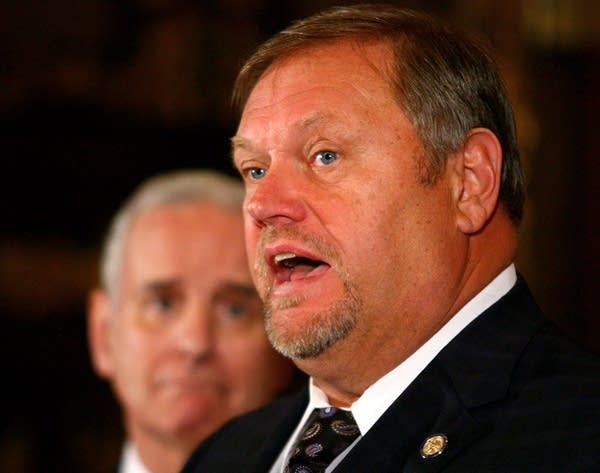School funding through property tax 'unfair,' key DFL leader says

A key state lawmaker is calling for changes in education funding that would make Minnesota school districts less reliant on local property taxes.
Incoming Senate Majority Leader Tom Bakk, DFL-Cook, said he thinks the current referendum system has driven up property taxes and created unequal funding for schools across the state.
State lawmakers are poised to consider a major overhaul of Minnesota's tax system in the 2013 Legislative session. Bakk has said that he wants public school funding to be included in the discussion and that he believes school districts rely too much on voter-approved levies to generate operating money.
Ninety percent of Minnesota districts have such levies in place, which Bakk said makes for bad education policy.
Create a More Connected Minnesota
MPR News is your trusted resource for the news you need. With your support, MPR News brings accessible, courageous journalism and authentic conversation to everyone - free of paywalls and barriers. Your gift makes a difference.
"It's an unfair way to fund schools," Bakk said. "You get funding disparities all over the state, because some districts just have a totally different tax capacity or totally different demographics. So there's a lot of reasons that some districts -- no matter how hard they try, no matter how bad they need it -- they can't get a levy passed by people.
"I think most Minnesotans think funding schools should be a state obligation."
Bakk repeated his concern at a recent pre-session briefing with reporters, but he did not specify how big that state obligation should be. He instead pointed out that the "Minnesota Miracle" of the early 1970s dedicated a percentage of property taxes to local schools, with the state funding the balance.
"We simply don't have the resources to make it totally state funded," he said. "But I think to the extent that those local taxes are a consistent burden across the state on a homeowner or on the same value of business I think is the right policy, and we're very much out of sync right now."
The soon-to-be Senate minority leader, Sen. David Hann, does not embrace Bakk's approach.
Hann, R-Eden Prairie, said that spending more money on schools doesn't necessarily improve education. He wants to know whether the current state investment in schools is paying off with better student performance.

"Are we serving the purpose of really undercutting local control of education in favor of centralizing policymaking here in St. Paul or in Washington, D.C., and using the sort of equalizing of money or increasing funding as an excuse to do that?" Hann asked. "Does that serve the purpose of improving education outcomes? I'm not so sure."
State lawmakers have gone down this road before. They passed legislation in 2001 that boosted funding for school districts without voter-approved levies and for those with smaller levies in place. But districts have continued to turn to local voters to help supplement state funding. Democrats in the Minnesota House also are talking about education funding ideas.
House Speaker-Designate Paul Thissen, DFL-Minneapolis, said he, too, believes the growing shift to property taxes has meant schools are not getting the proper level of state funding. But Thissen said a solution still needs to be worked out.
"One of the things that a lot of our candidates, as they were going across the state, did hear a lot about was increasing class sizes and the impact that's having on the ability of their kids to get the best education possible," Thissen said. "I think trying to address that issue, which is a funding issue in some sense, is going to be a significant part of what we'll be looking at this year."
But the departing chairman of the House Education Finance Committee said he doesn't think the DFL lawmakers can follow through on all of their campaign promises.
State Rep. Pat Garofalo, R-Farmington, said the state just doesn't have enough money to increase education funding and lower property taxes.
"So the Democrats are going to have to decide what's more important," Garofalo said. "Do they want more resources going into the system, or do they want to spend more money to buy down property tax levies? That's going to be a difficult decision to identify what a higher priority is for them."
Gov. Mark Dayton, a Democrat, is also expected to push for education funding changes in 2013. A state task force formed by his Education Department recently suggested a 7 percent increase in state aid to schools, as well as a renewed emphasis on a statewide education levy, rather than local tax measures.
• Follow Tim Pugmire on Twitter: http://www.twitter.com/timpugmire
